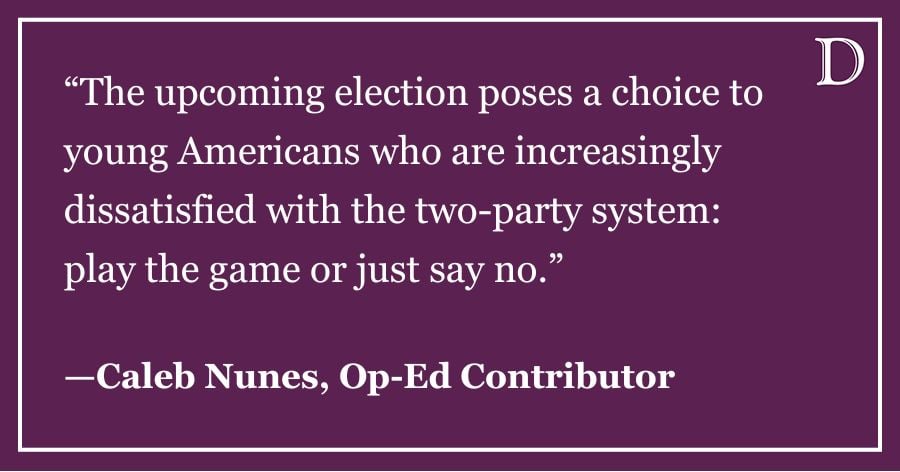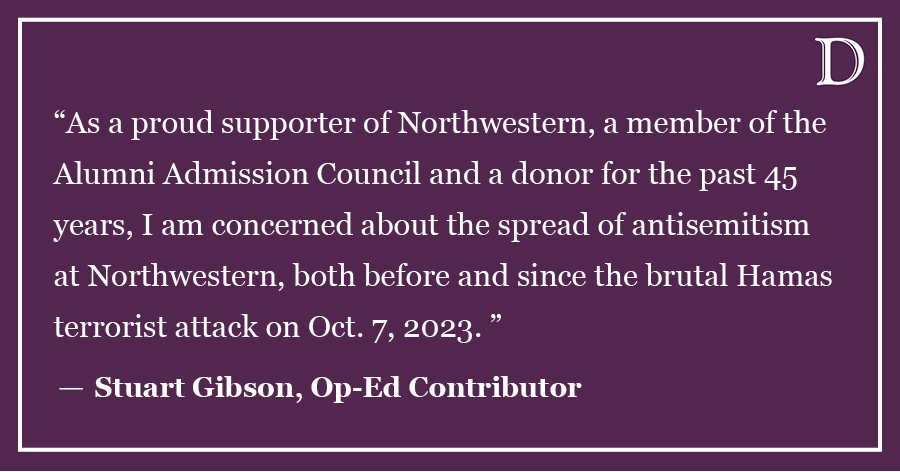Journalist Tracy Kidder brought inspiring words to campus as this year’s One Book One Northwestern keynote speaker. Kidder’s Mountains Beyond Mountains tells the story of Dr. Paul Farmer, a physician who has spent years working to improve public health worldwide, especially in Haiti. Kidder reflected on his inspiration, how he approaches emotional stories as well as the impulse he recognizes that people, especially students, have to work for global change and awareness. The Protest, in a joint interview with The Daily Northwestern and North by Northwestern, spoke with Kidder before his keynote address.
Q: What inspired you to write Mountains Beyond Mountains?
A: I ran into [Paul Farmer] by accident in Haiti and…I was pretty interested once I found out who he was and what he’s doing. What I’m looking for is an interesting person, rarely a subject. Once I had gone with him to Haiti and seen what he and his colleagues had accomplished, I was pretty hooked. I’m interested in the person and then of course I get interested in the subjects that preoccupy that person. One of the first…philosophical things I learned from him is what a powerful lens public health and medicine was to place on the world. The things that I saw I hadn’t realized or thought about – maybe because I hadn’t wanted to.
Q: Do you think of yourself as a literary journalist or as a storyteller, or how do you define the books that you write?
A: I’m kind of uncomfortable with both terms now. The journalism part to me is…trying to get a story and report it well and get the facts. But it’s not just enough to make the facts accurate. One of the things I loved about this when I started is it’s not part of the academic world. It had a wild freedom to it. I like the term nonfiction. I also don’t mind the idea of factual storytelling.
Q: Do you have any ideas as to why public health particularly resonates with college students?
A: What I would like to think is that…our current culture just seems inadequate for what young people feel they want and sort of need out of the world. I set out to write, I came across an interesting story and wanted to tell it as best as a I could. I have a lot of feelings and notions about international aid and I think I stumbled across one of the few exemplary [people] who is doing it the right way.
Q: What lesson do you think students could take from Mountains Beyond Mountains?
A: There is such a thing as effective altruism. The way I think of this, I still read the paper…and sometimes I wish I hadn’t bought it because it seems as though the world is completely governed by violence and chaos and there is no hope in the end. But, the fact that there are effective counter forces and people who are determined to do something like Paul Farmer and like Partners in Health and all his colleagues…It is not that I think these counter forces are going to win, the odds are that they aren’t, but just the fact that they are there makes the world seem less bleak. What you really want is to make these settings vivid and…you hope to make a reader care about what you’re writing about. If you can do that then you might get lucky and it has a sort of afterlife and other meaning for people.
Q: When you are writing these stories how hard is to be able to write without being so overwhelmed?
A: I failed one time. I was trying to write about American policy toward Haiti and I think I was too overwrought about it. I suppose you could write out of anger, but one has to be honest and say well I’m not doing very much either. I think most writers…come to this place where they see something and are saying this is terrible and at the same time are saying to themselves, this is good material. It’s really true for me. I try to keep these things separate. I think I really owe the potential readers some kind of…truth. I want what I have justified belief in to be presented.
This article was created by an affiliate of The Daily Northwestern. The Daily is not responsible for the article’s content. For more information, please contact The Daily’s editor in chief at eic@dailynorthw







